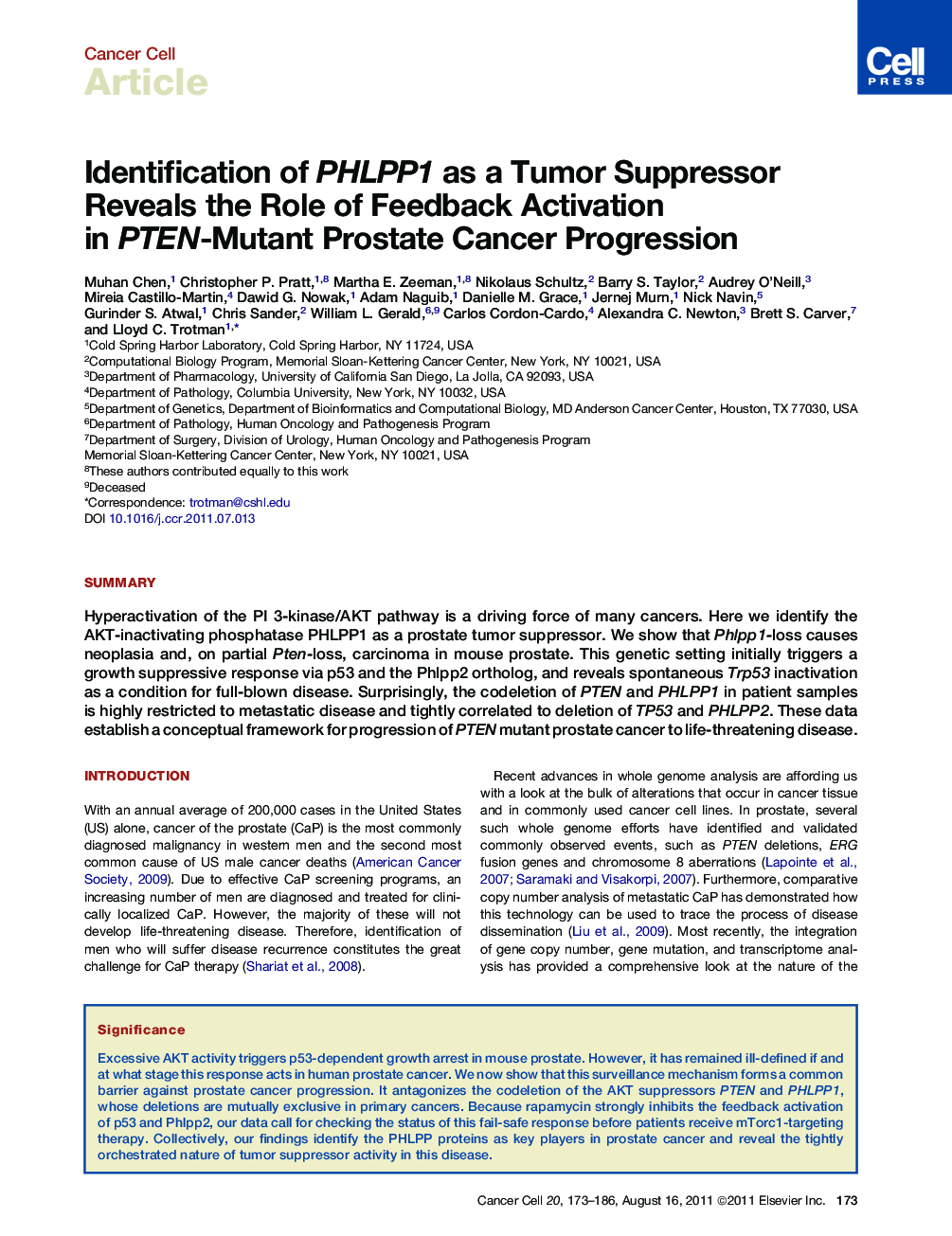| کد مقاله | کد نشریه | سال انتشار | مقاله انگلیسی | نسخه تمام متن |
|---|---|---|---|---|
| 2107474 | 1083680 | 2011 | 14 صفحه PDF | دانلود رایگان |

SummaryHyperactivation of the PI 3-kinase/AKT pathway is a driving force of many cancers. Here we identify the AKT-inactivating phosphatase PHLPP1 as a prostate tumor suppressor. We show that Phlpp1-loss causes neoplasia and, on partial Pten-loss, carcinoma in mouse prostate. This genetic setting initially triggers a growth suppressive response via p53 and the Phlpp2 ortholog, and reveals spontaneous Trp53 inactivation as a condition for full-blown disease. Surprisingly, the codeletion of PTEN and PHLPP1 in patient samples is highly restricted to metastatic disease and tightly correlated to deletion of TP53 and PHLPP2. These data establish a conceptual framework for progression of PTEN mutant prostate cancer to life-threatening disease.
Graphical AbstractFigure optionsDownload high-quality image (214 K)Download as PowerPoint slideHighlights
► PHLPP1 is a prostate tumor suppressor that cooperates with PTEN
► Phlpp1/Pten codeletion requires p53 inactivation for senescence bypass
► Codeletion is associated with metastatic disease
► Codeletion triggers rapamycin-sensitive p53 and Phlpp2 activation
Journal: - Volume 20, Issue 2, 16 August 2011, Pages 173–186